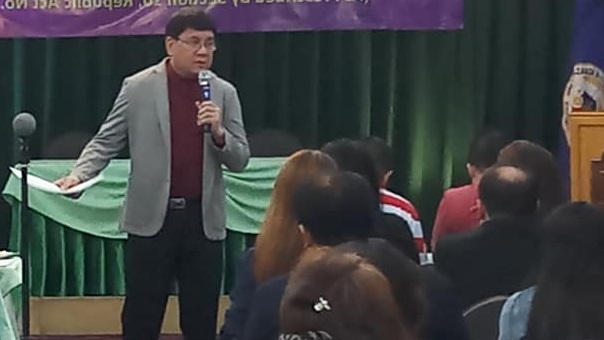Law expert: Imelda can apply for bail
 Ranhilio Callangan Aquino, a law expert, wrote the following on his Facebook wall. SOURCE: https://www.facebook.com/rannieaquino; https://www.facebook.com/rannieaquino/posts/2274192389277038
Ranhilio Callangan Aquino, a law expert, wrote the following on his Facebook wall. SOURCE: https://www.facebook.com/rannieaquino; https://www.facebook.com/rannieaquino/posts/22741923892770381. After the judgment of conviction, the accused has fifteen days within which to file a Motion for Reconsideration.
2. When the Motion for Reconsideration is denied by the Sandiganbayan, as I predict it will be denied, then the Court may order her arrest.
3. Once arrested, she can apply for bail, but since she has already been convicted, it is for the Court to exercise its discretion and to decide whether to grant bail or not.
4. Considerations will include the gravity of the crime, the penalty imposed, the risk of flight and the health condition of the accused.
5. Let us not be cynical about the Supreme Court. Even if past cases against the Marcoses were dismissed, that does not mean that the Supreme Court does not decide on the merits, and so it is best for our country that we continue to rely on our judicial institutions...not necessarily on what we want the decision to be but on what the facts and the law direct.
6. That Imelda Marcos has been convicted should be proof that our judicial institutions are at work, that they are trustworthy and that there is no reason to distrust them.
He is likewise professor of philosophy at the Faculty of Philosophy, University of Santo Tomas, and was recently appointed Dean of the Graduate School of Law, San Beda College. In the Winter Term of 1993, he was admitted as a Research Fellow at the Catholic University of Louvain (Katholieke Universiteit Leuven) in Belgium. Joining the Philippine Judicial Academy of the Supreme Court in 1998, he became a Fellow of the Commonwealth Judicial Education Institute, Dalhousie University, Halifax, Nova Scotia. In 2001, the Supreme Court sent him to the Federal Court of Australia as part of a team of Filipino jurists led by Mr. Justice Jose Vitug who completed a course on Commercial Law. In August of 2003, he did studies in Philosophy at Cambridge University, England.
He has authored books both in philosophy and in law. In philosophy, he wrote: A Philosophy of Education; A Philosophy of Law; and Man at Worship: A Philosophy of Religion. In law, he authored Peace on Earth: Issues in Public International Law; Intellectual Property Law: Comments and Annotations, now on its second edition; and Private International Law. He has also annotated for Supreme Court Reports Annotated and is a regular contributor to The Lawyers' Review. Among his lecture tours in philosophy were for the Taniguchi Foundation of Japan on Eco-Ethica. He did research on liturgy and canon law at the University of Navarra in Pamplona, Spain. He argued at a Demonstration Trial in Dublin, Republic of Ireland for the World Conference of Jurists in 2001 on an issue of international environmental law, where he also read a paper in jurisprudence. SOURCE: http://www.central.com.ph/bookstoreplus/authordetails/111/



